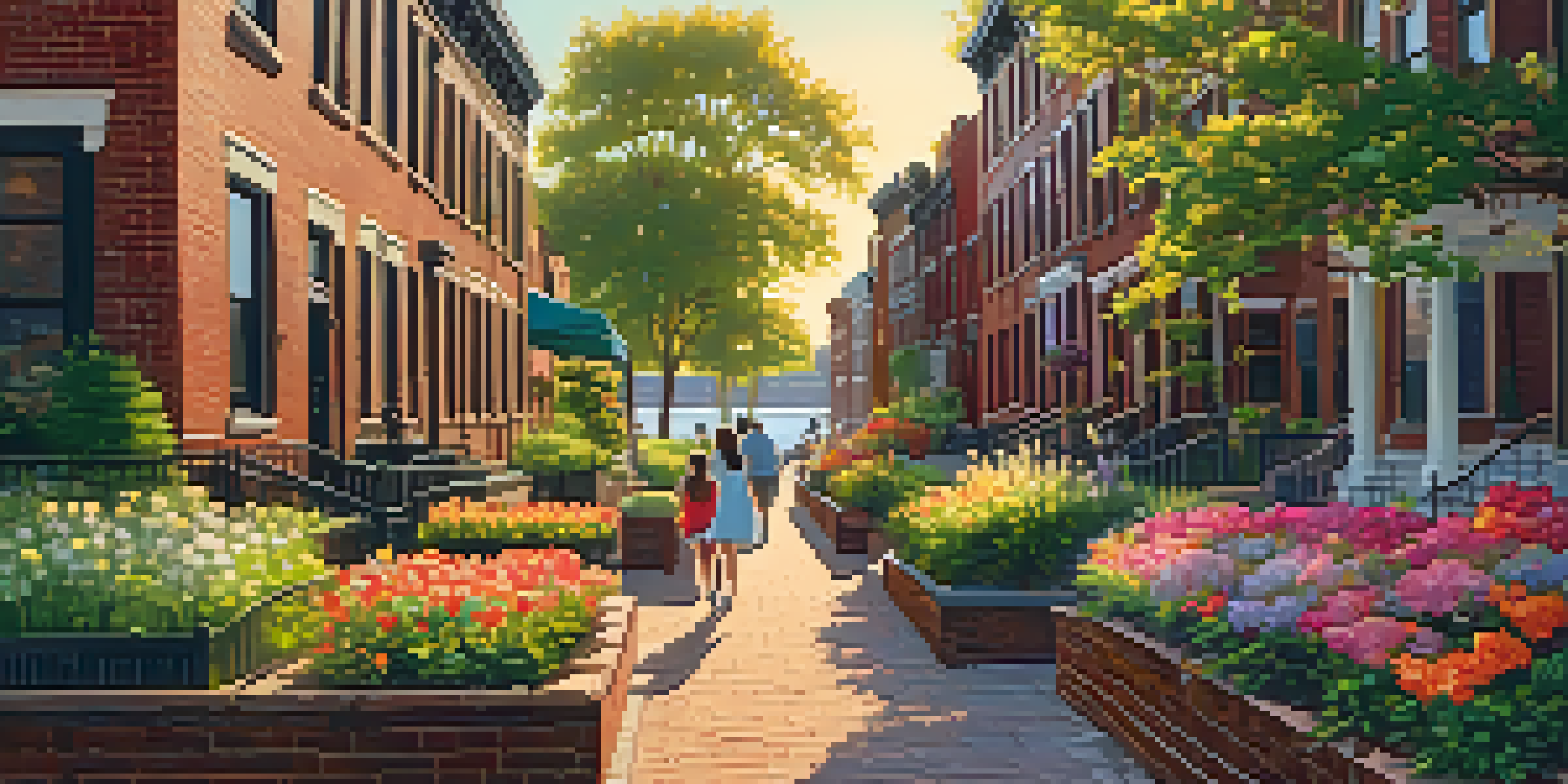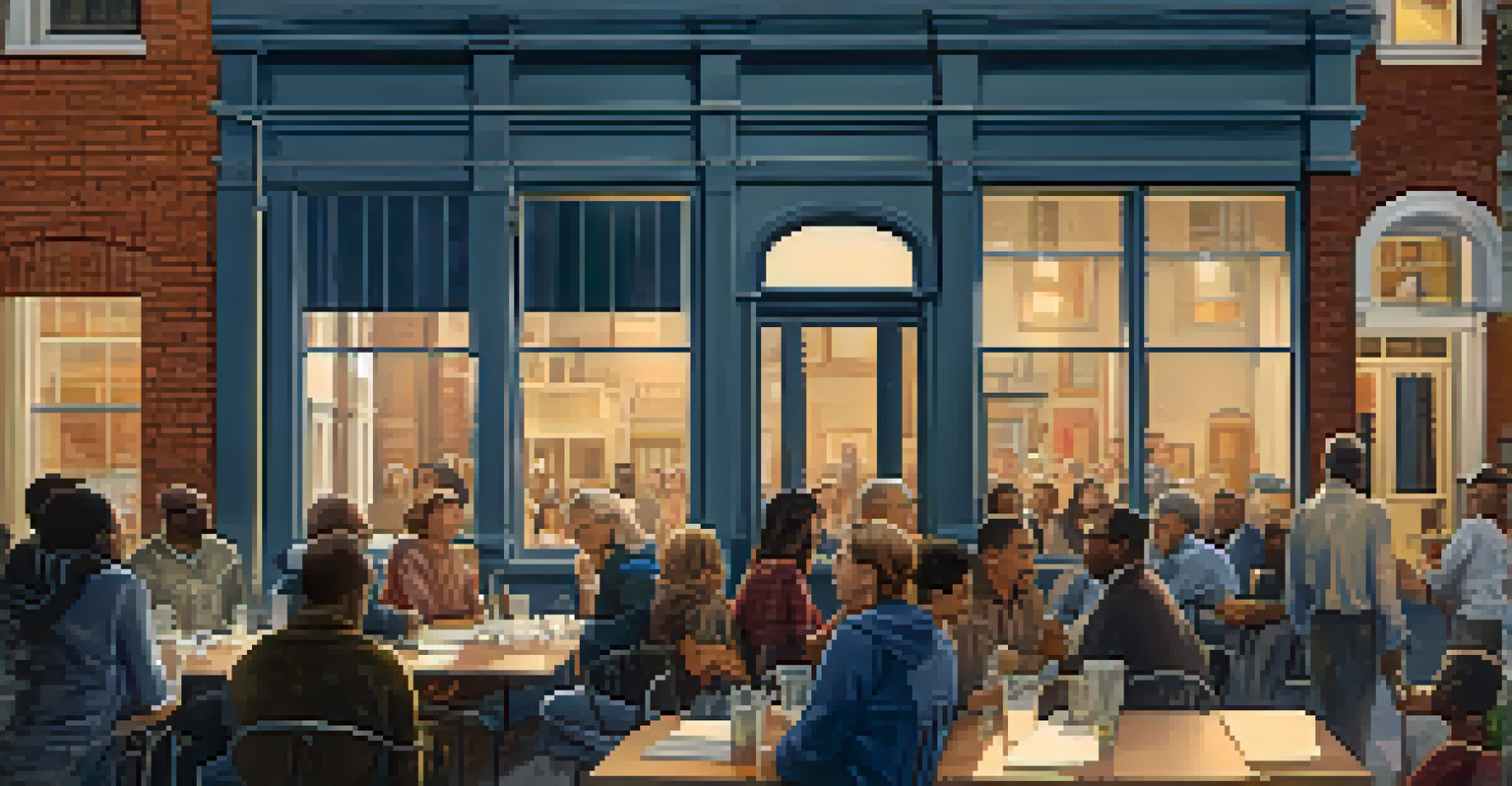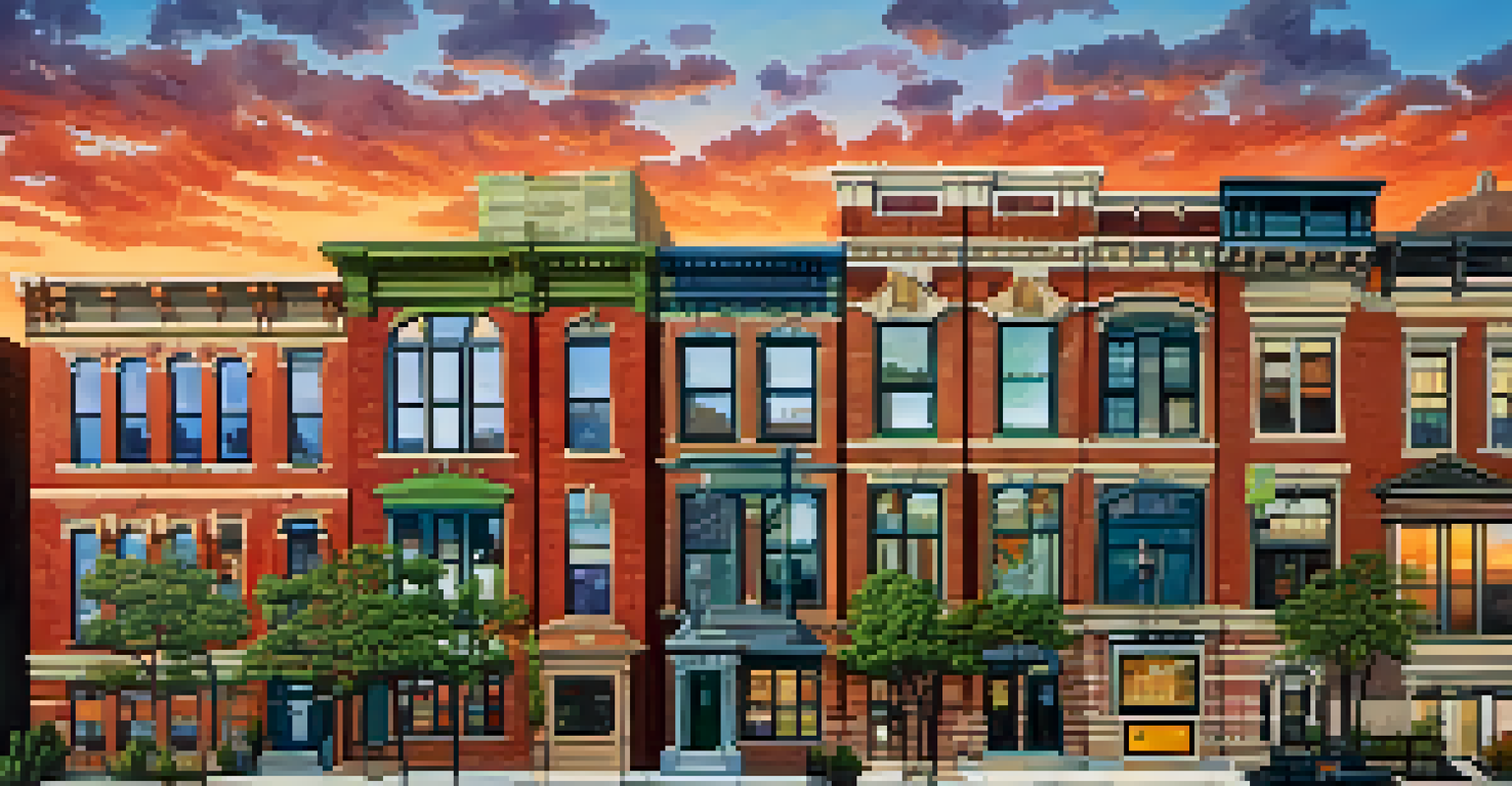Impact of Zoning Laws on Jersey City's Historic Preservation

Understanding Zoning Laws in Jersey City
Zoning laws are regulations that dictate how land can be used in a city. In Jersey City, these laws play a crucial role in determining the types of buildings and activities allowed in different areas. For instance, residential zones may restrict commercial activities, while industrial zones could limit residential development. This framework aims to promote orderly growth and protect community character.
Preservation is a form of sustainability, an opportunity to maintain the character of our neighborhoods while accommodating growth.
The intricacies of zoning can be a bit complex, but at their core, they help maintain the balance between development and preservation. In Jersey City, the zoning code has evolved over the years, reflecting changes in population, economic conditions, and community priorities. As a result, understanding these laws is essential for anyone interested in the city’s development trajectory.
Moreover, zoning laws can directly impact historic districts, which are areas designated to preserve the character and integrity of historic buildings. These laws can either support preservation efforts by restricting alterations to historic properties or hinder them by allowing new developments that clash with the existing character of the neighborhood.
The Role of Historic Preservation in Jersey City
Historic preservation in Jersey City aims to safeguard the city's rich architectural heritage, which tells the story of its diverse past. By protecting historic buildings and districts, the city not only honors its history but also enhances cultural tourism and community pride. Preservation efforts often involve local organizations and community members who advocate for maintaining the authenticity of historic areas.

One notable example is the preservation of the Paulus Hook neighborhood, known for its stunning brownstones and waterfront views. This area has undergone significant revitalization while maintaining its historical integrity, showcasing how preservation can coexist with modern development. The success of such initiatives often hinges on effective zoning laws that support preservation efforts.
Zoning Laws Shape City Development
In Jersey City, zoning laws regulate land use, balancing development and preservation to reflect community needs.
Additionally, historic preservation can lead to economic benefits, as preserved areas often attract businesses and tourists. This, in turn, creates jobs and stimulates local economies. However, the challenge lies in balancing new growth with the need to protect the past, making the role of zoning laws more critical than ever.
Challenges of Zoning Laws in Preservation Efforts
While zoning laws can support historic preservation, they can also pose significant challenges. For instance, restrictive zoning regulations may limit a property owner's ability to renovate or expand their historic home. This can lead to frustration among homeowners who want to modernize their properties while still respecting the historical context.
The past is not a burden, but a guide that helps us navigate the future.
Moreover, the pressure from developers seeking to capitalize on prime locations can create conflicts between preservationists and those advocating for new construction. In Jersey City, as the demand for housing and commercial space increases, there’s often a push to rezone areas that contain historic structures. This tension can result in heated debates within the community about the future of these sites.
Additionally, the bureaucratic process involved in navigating zoning laws can be overwhelming for individuals and organizations dedicated to preservation. Securing the necessary permits and approvals can be time-consuming, leading some to abandon their preservation efforts altogether. As such, it’s vital for all stakeholders to engage in open dialogue to address these challenges.
Recent Changes to Zoning Laws Affecting Preservation
In recent years, Jersey City has seen updates to its zoning laws aimed at enhancing historic preservation. These changes often come in response to community concerns about development pressures threatening historic neighborhoods. For example, some zoning revisions have introduced stricter guidelines for alterations to historic buildings, ensuring that any changes are in line with preservation goals.
Additionally, Jersey City has increased incentives for developers to incorporate historic preservation into their projects. Tax credits and grants are now available for those who commit to maintaining the integrity of historic sites. This not only encourages developers to consider preservation but also fosters a collaborative spirit between the city and private entities.
Historic Preservation Boosts Economy
Preserving historic neighborhoods enhances property values and attracts tourism, benefiting local businesses and the economy.
These recent changes reflect a growing recognition of the value of preserving Jersey City's unique architectural heritage. However, the effectiveness of these new regulations will depend on ongoing community engagement and the willingness of stakeholders to uphold preservation standards.
Community Engagement in Preservation Efforts
Community engagement plays a pivotal role in the preservation of Jersey City's historic areas. Local residents often have a deep emotional connection to their neighborhoods and are crucial advocates for preserving their unique character. Community meetings and public forums provide platforms for residents to voice their concerns and collaborate on preservation initiatives.
Organizations such as the Jersey City Landmarks Conservancy actively work to involve the public in preservation efforts. By organizing events, educational workshops, and volunteer opportunities, these organizations help raise awareness about the importance of maintaining the city’s historic fabric. Engaged communities are more likely to support zoning laws that prioritize preservation.
Furthermore, social media has become a powerful tool for mobilizing community support. Residents can share their stories, photos, and experiences related to historic properties, fostering a sense of collective ownership. This grassroots activism is essential for influencing local policies, including zoning regulations that affect preservation efforts.
The Economic Impact of Zoning and Preservation
The intersection of zoning laws and historic preservation has significant economic implications for Jersey City. Preserving historic neighborhoods can enhance property values, attract tourism, and stimulate local businesses. When areas are well-maintained and rich in character, they become desirable destinations for both residents and visitors alike.
Conversely, poorly managed development can lead to economic decline in historic areas. If zoning laws favor high-density developments at the expense of preservation, the unique charm of neighborhoods could diminish, resulting in decreased property values and diminished community appeal. Balancing economic growth with preservation is crucial for maintaining a vibrant city.
Community Engagement is Essential
Active community involvement is critical for successful preservation efforts, influencing zoning laws and maintaining neighborhood character.
Moreover, investment in preservation can yield long-term economic benefits. Research shows that historic rehabilitation projects often create more jobs per dollar invested compared to new construction. By prioritizing preservation in zoning laws, Jersey City can foster a sustainable economic future that honors its past.
Future Directions for Zoning and Historic Preservation
Looking ahead, the future of zoning laws and historic preservation in Jersey City will likely evolve as the city continues to grow. There is an increasing recognition of the importance of integrating preservation efforts into urban planning. As new developments emerge, city planners will need to consider how these projects impact existing historic sites.
Future zoning regulations may include more adaptive reuse provisions, allowing developers to repurpose historic buildings for modern uses without compromising their integrity. This approach not only helps preserve the character of neighborhoods but also contributes to a more sustainable urban environment by reducing waste and promoting resource efficiency.

Engaging with the community will remain vital in shaping these future directions. As residents become more involved in the planning process, their input will help ensure that both zoning laws and preservation efforts align with the community's desires and values. This collaborative approach can pave the way for a future where historic preservation and urban development coexist harmoniously.